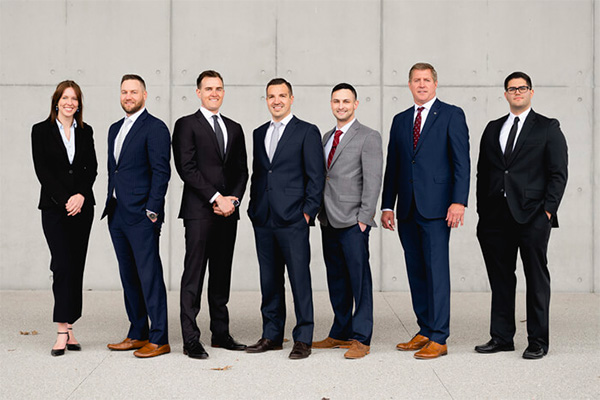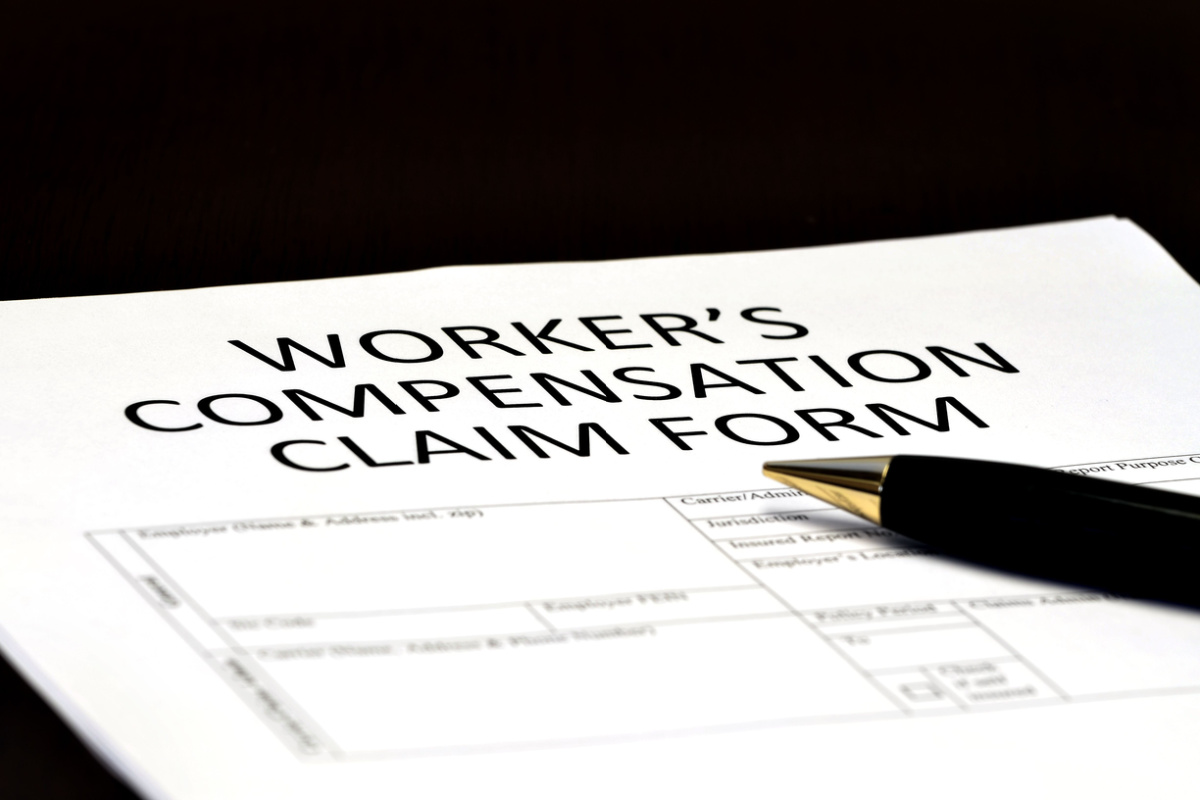
Imagine logging into a virtual meeting for work during the height of the pandemic. You struggle to maintain a professional manner and concentrate on the discussion because you just lost a family member to COVID-19. Many of us experienced tremendous emotional and mental trauma from the constant stress of balancing personal trauma against the pressure to keep up productivity at work.
Lockdown measures, uncertainty about the course of the disease, and the pressure to maintain work during a global crisis created widespread increases in anxiety and depression. Many workers struggled to return to offices where they’d lost coworkers to the virus. Over 93% of frontline healthcare workers reported an increase in stress, along with frustration and burnout.
Even if an employee escaped COVID-19 infection, they might suffer a psychological injury that must be addressed before returning to work. When a worker is injured physically on the job, there are procedures to ensure they don’t come back before they’re ready. Increasingly, this extends to the mental harm that workers suffer. In the midst of their stress, an employee may wonder if an employer can force someone to come back to work after a workplace injury.
Physicians, Not Employers, Make the Call
Most companies are primarily interested in protecting their bottom line. If productivity is lowered because an employee is out of work from an accident, then executives and managers may be keen to get them back as soon as possible. Also, the insurance company providing workers’ compensation coverage doesn’t want to pay benefits and wages longer than necessary.
However, the company and the insurance provider do not have the authority to tell an employee to return. That decision rests with the doctor who is treating the worker’s injuries. They will use a disability rating system to categorize the employee’s work status by adding details and notes to the patient’s chart at each visit. The rating system has four categories:
- Temporary Total Disability: No work can be performed for a limited time.
- Temporary Partial Disability: Some work duties can be performed for a limited time.
- Permanent Total Disability: The employee cannot work again for life, whether for their original employer or another.
- Permanent Partial Disability: A permanent injury prevents the worker from performing some duties for life.
The doctor will dictate any restrictions on a return to partial work and when the person can return to full work duties full-time. The goal is to reach maximum medical improvement (MMI), meaning the injury has healed as much as possible, and the employee can work again.
Another option is to approve light-duty or seated work, either full- or part-time. This can benefit someone who is approaching full recovery, allowing them to return to their job without the risk of reinjuring themselves.
When the Doctor Says “OK” but the Person is not Ready
In some instances, the attending physician may release a person to return to work, but the individual does not feel ready. Because worker’s compensation covers their medical treatment, employees are obliged to return when released. Failing to go back to work exposes a worker to the risk of losing their job and their workers’ compensation benefits.
Employees on disability leave should carefully review all paperwork they receive after a doctor’s visit. The physician might have indicated a return-to-work date even if they did not state it in person. Once the worker is released to go back to the job, they must notify their employer right away and report to work on the specified date.
Many employers institute return-to-work programs to help their staff transition back into their jobs. This could be especially helpful if a serious injury keeps the employee out of work for a year or more. However, even when a company is committed to successful returns, it’s still beneficial to have the advice of an experienced worker’s compensation lawyer to know the options.
Ways an Employer May Pressure Employees to Return Early
Both the employer and the workers’ compensation insurance provider will keep a close eye on all medical visits and recommendations from the treating physician. Since the insurance company has a vested interest in shortening the days they pay for medical treatment, they will use case managers to examine records carefully. They may pressure the doctor to release an employee early or question the necessity of extending treatment.
Even though it can break state laws concerning workers’ compensation, some employers may contact an employer with threats about job status to get them back before they are fully healed. Smaller companies are at greater risk financially when a staff member is out of work and may be less versed in employment law. To protect their company, they may unwittingly violate an employee’s rights.
Another way supervisors may attempt to bring someone back early is to play on their sense of duty and responsibility. While checking in with the worker on leave, they may emphasize how hard it is without the individual doing their part. Conscientious people could be guilt-tripped into putting the company’s needs above their own recovery.
Firing a Worker After a Workplace Injury
It may seem unfair for an employer to fire a worker after they suffer a workplace injury, but there are some instances when it’s possible. If the individual is in a key position and the company will suffer financially from their absence, the employer may be able to replace them. This is typically done when the injured employee is out of work for an extended time, but it varies from company to company
In other cases, the company may be unable to guarantee a position or level of pay when the injured employee returns to work. Without a contract outlining the circumstances, the affected worker has little recourse. Companies may or may not detail this in their employee manuals.
When a person is released to work by their doctor and chooses not to return, it sets them up for possible termination. In most circumstances, the company is within its rights to end the relationship and hire another person. Failing to get back to work is usually considered job abandonment.
Consult With a Worker’s Compensation Lawyer
Facing recovery from an on-the-job accident is stressful enough for any employee without also worrying about being forced to go back to work after a workplace injury. Insurance companies are eager to end benefits as quickly as possible without concerning themselves with how an injury might get worse. Companies are thinking about their productivity above all else.
Regardless of the details of the situation, any injured employee should consider discussing the legal complexities around benefits with a worker’s compensation lawyer.
Understanding your rights and the proper steps to take is crucial, such as recognizing the importance of reporting your work injury in a timely fashion to ensure your eligibility for compensation. A professional versed in the nuances of occupational diseases in Iowa, as well as the appeals process, can provide invaluable guidance. This is especially vital if you find yourself in a scenario where your injury might not be clearly covered under workers’ compensation. By consulting with a legal expert, you can gain insights from a comprehensive workers’ compensation guide tailored to your unique situation, thereby fortifying your case with robust legal knowledge and strategy.
If you were recently involved in a car accident in Des Moines and need legal representation, a Des Moines car accident attorney can help. They have the experience and knowledge to handle your case and fight for your rights.
Categories

Providing Unmatched EXPERIENCE On Your Case When you find yourself in a situation where you’ve been treated unfairly or you’re in the middle of a legal disagreement, it can be difficult to know what your rights are and how to proceed.







